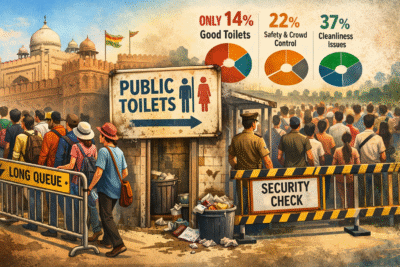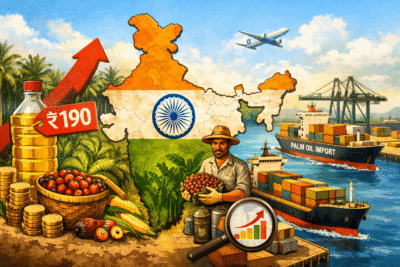
India and the Maldives share a historically close and friendly relationship based on cultural ties, geographic proximity, and shared strategic interests. However, recent years have seen challenges and strains in this relationship. It has worsened since the election of Mohamed Muizzu as the President of the Maldives. Here’s a breakdown of the factors contributing to India’s diminishing influence in the Maldives:
1. China’s Growing Influence:
- Debt-trap Diplomacy: The Maldives has accumulated significant debt through Chinese-funded infrastructure projects under the Belt and Road Initiative (BRI). This has raised concerns about the Maldives’ economic sovereignty and vulnerability to Chinese pressure.
- Strategic Presence: China’s increasing economic role in the Maldives has been accompanied by a growing strategic footprint, potentially challenging India’s traditional dominance in the Indian Ocean region.
2. Domestic Politics in the Maldives:
- ‘India Out’ Campaign: Former Maldivian President Abdulla Yameen Abdul Gayoom adopted a pro-China stance and ran an ‘India Out’ campaign, exploiting anti-Indian sentiments for political gain. This created a perception of India as a meddlesome power. Muizzu is Yameen’s protege and following his policies to the teeth.
- Democratic Backsliding: Concerns about democratic backsliding and human rights violations under the Yameen regime further strained relations with India, which traditionally advocates for democracy in its neighborhood.
3. India’s Policy Responses:
- Overt Pressure: At times, India’s attempts to counter Chinese influence have been perceived as heavy-handed or interventionist. This includes economic measures or a reluctance to engage with leaders deemed unfavorable to Indian interests.
- Missed Opportunities: India has potentially missed opportunities to deepen economic engagement and cooperation on issues of shared concern such as climate change, where the Maldives is particularly vulnerable.
Consequences for India
- Strategic Concerns: Chinese influence in the Maldives impacts India’s security concerns in its own backyard, the Indian Ocean.
- Regional Influence: India’s declining influence in the Maldives potentially weakens its role as a regional leader and a net security provider.
- Image and Soft Power: Strained relations with a smaller neighbor undermine India’s standing and its commitment to a ‘neighborhood first’ policy.
What Can India Do?
India needs to adopt a more nuanced and multifaceted approach to regain its foothold in the Maldives. This includes:
- Focus on People-to-People Ties: Reinvigorate cultural and educational exchanges to strengthen the bonds between the two countries.
- Emphasize Cooperative Development: Offer alternative development models that are sustainable and don’t create debt-traps, focusing on areas critical to the Maldives like climate resilience and renewable energy.
- Strategic Communication: Counter Chinese influence through strategic partnerships with other like-minded countries interested in a free and open Indo-Pacific region.
- Respect for Sovereignty: Engage with the Maldives in a way that respects its sovereignty and avoids any perception of undue interference.
Important Considerations
It’s crucial to remember that the relationship between India and the Maldives is complex and evolving. Building trust, demonstrating sensitivity to Maldivian concerns, and adopting a long-term strategic approach will be vital for India to maintain its traditionally positive role in the Maldives.



